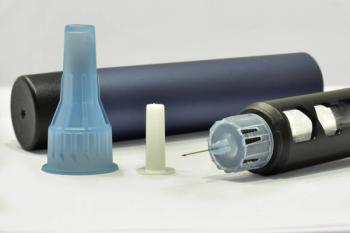
- Drug Topics September 2020
- Volume 164
- Issue 9
Biosimilars May Lead to Improved Competition and Lower Costs
How will biosimilars continue to affect the prescription product market in 2021?
Biosimilars, which offer the potential for more treatment options and less expensive alternatives, are having a good year in 2020 and may have a significant impact on the prescription product market in 2021. With the approval of more biosimilar medications, experts hope that greater competition may occur and help lower overall costs. “As intellectual property protections for biological products continue to expire in the US, we can expect many more applications for potential biosimilar and interchangeable products, and increased uptake of approved products too,” said Sarah Yim, MD, the director of the Office of Therapeutic Biologics and Biosimilars at the FDA’s Center for Drug Evaluation and Research, in Bethesda, Maryland.
Some of the key issues affecting biosimilar uptake involve reimbursement factors and insurance coverage, according to Yim. However, she said, business and intellectual property concerns also have contributed to the delayed launch of some FDA-approved biosimilars. In 2009, the Biologics Price Competition and Innovation Act created an abbreviated regulatory pathway for biological products demonstrating to be biosimilar or interchangeable with an FDA-approved drug. Since then, the FDA has approved biosimilar medications to treat a host of conditions, including cancer, colitis, Crohn disease, rheumatoid arthritis, and psoriasis.
Biologics are medicines that generally come from living organisms, which include animals and microorganisms (yeast and bacteria). A biosimilar is defined by the FDA as a biologic that has no clinically meaningful differences from another biologic that is already FDA approved. Biosimilars are made with the same types of natural sources as the original medication and are delivered the same way. They have the same strength and dosage and the same potential adverse effects.
The FDA has outlined 4 key strategies in its Biosimilars Action Plan (BAP) to accelerate biosimilar competition. “We continue to work on the key elements of the BAP, and we have ongoing activities that fit within all of the elements,” Yim told Drug Topics®. The 4 strategies are:
- Improve the development and approval process for biosimilar and interchangeable products.
- Maximize scientific and regulatory clarity for the developers of biosimilar products.
- Improve the understanding of biosimilars among patients, clinicians, and payers.
- Support market competition by reducing gaming of FDA requirements and other attempts to unfairly delay competition.
Right now, there are 28 FDA-approved biosimilar products, and 17 are on the market. “We have seen a jump in the past year of launched products. In addition, the biosimilars that are on the market have typically launched with initial list prices 15% to 35% lower than the list prices of the reference products,” Yim said.
Over the next 6 to 18 months, the landscape will be evolving for biosimilar and interchangeable insulin products and other transition biological products. Under new regulations, insulin and other biological products such as human growth hormone (somatropin), pancrelipase, chorionic gonadotropin, follitropin alfa, and menotropins are regulated by the FDA in biologics license applications. This means that manufacturers can submit marketing applications for proposed biosimilar and interchangeable products that reference transitioned biological products. “If approved, these products will help bring competition to those markets, and patients may have more affordable access to the medications they need,” Yim said. “I am hopeful that we will see the FDA’s first interchangeable biosimilar product during the time period [6 to 18 months].”
Once an interchangeable product is approved and available on the market, Yim said it can then be substituted for the reference product without the intervention of the prescriber. It is hoped that this will lead to increased access and lower costs for patients. There are more than 80 biosimilars in the development pipeline. Five biosimilars have been approved in the last year, with adalimumab-fkjp (Hulio) and pegfilgrastim-apgf (Nyvepria) most recently approved (Table 1).1
Sandoz Inc has 8 approved biosimilars worldwide and 4 in the United States. Sheila Frame, the vice president of marketing, market access, and patient services at Sandoz in Princeton, New Jersey, said reimbursement policies do not support the use of biosimilars, and despite progress in certain therapeutic areas, some hesitancy remains among many clinicians to switch to a biosimilar. “To realize the full promise of biosimilars in the US, we need to support policies that increase their adoption and help create a more balanced and competitive marketplace,” Frame told Drug Topics®.
She said that within Medicare Part D, Sandoz supports reducing administrative burdens for patients and providers by removing redundant prior authorization for a biosimilar when one has been granted for the reference biologic. Widespread adoption of biosimilars in clinical practice has faced headwinds, in part because of targeted misinformation campaigns, Frame said.
A recent article examining the impact of biosimilar misinformation and disparagement campaigns suggested these campaigns can harm opportunities to increase patient access.2 “We are encouraged by action from the FDA and the FTC [Federal Trade Commission] to combat pervasive misinformation, but it is the responsibility of all stakeholders to challenge biosimilar disparagement and misinformation when encountered. Clear and unbiased scientific messaging is crucial to helping patients and clinicians better understand the value of biosimilars,” Frame said.
She said the cost savings from biosimilar medicines could be enormous, saving the US health care system billions of dollars over the coming years.
Andrew Powaleny, director of public affairs at the Pharmaceutical Research and Manufacturers of America in Washington, DC, said the rich pipeline of potential biosimilar products in development and market experience suggest there still is significant potential for cost savings in the marketplace.
A recent analysis of the market dynamics of 4 biologics and their biosimilars demonstrated that the net prices of all the originator biologics decreased following the entry of biosimilars. In the Medicaid program, discounts increased by between 20.1 and 35.2 percentage points.3 “As the market experience with biosimilars increases, we expect product usage to play an expanded role in options for patients and further decrease prescription drug spending. Experts have argued that the coming wave of biosimilars will penetrate the market even more quickly than those already available for patients,” Powaleny said.
COVID-19 Pandemic and Prescription Drug Costs
Currently, the coronavirus disease 2019 (COVID-19) pandemic is crippling the economy. Frame said everyone is looking toward rebuilding, so any and all cost savings are on the table. “Supporting and advancing policies that increase access and use of lower-cost biosimilars can help,” she said.
At the University of California, San Francisco (UCSF), Health, leadership has endorsed the adoption of biosimilars for clinical care, according to Candy Tsourounis, PharmD, a professor in the department of clinical pharmacy at the UCSF School of Pharmacy. As a member of the department’s Medication Outcomes Center, Tsourounis is involved in providing evidence-based reviews of recently approved prescription medications and performing medication utilization analyses for UCSF Health. She said the endorsement of biosimilars aligns with the national adoption of biosimilars across health systems to ensure safe and cost-effective therapies are available to advance health. Now, during the COVID-19 pandemic this may be more important than ever.
“We anticipate significant cost savings while maintaining high-quality care and ensuring similar clinical outcomes. Over the next 6 to 18 months, we hope to show similar clinical outcomes but with significant reductions in drug spending, not only within UCSF Health, but also more broadly for UC Health,” which oversees and provides strategic direction across all 6 health systems, including UCSF Health, Tsourounis told Drug Topics®.
Brian Komoto, PharmD, past president of the California Pharmacists Association in Visalia, California, said biosimilars will could help improve patient access and reduce copays for many more individuals in the coming year. He noted that educating clinicians is vital. “Hopefully, physicians are receptive and the use of biosimilars can increase,” Komoto told Drug Topics®. “This should also allow pharmacies that are not able to get contract pricing, the ability to work with manufacturers of biosimilar products.”
Francis B. Palumbo, PhD, JD, a professor and executive director at the University of Maryland School of Pharmacy’s Center on Drugs and Public Policy in Baltimore, is a member of the biosimilars working group for the American Pharmacists Association, and he agrees that at this time clinician acceptance is vital. The trend appears positive, and it seems that biosimilars are having a significant impact in terms of patient access and lowering overall costs. “Biosimilars are now being approved at an increasing pace and have most likely reached some level of critical mass where they can exert real influence on the market,” Palumbo told Drug Topics®.
References:
- FDA. Biosimilar product information. Updated July 7, 2020. Accessed August 7, 2020.
fda.gov/drugs/biosimilars/biosimilar-product-information - Cohen, HP, McCabe, D. The importance of countering biosimilar disparagement and misinformation. BioDrugs. 2020;34(4):407-414. doi:10.1007/s40259-020-00433-y
- San-Juan-Rodriguez A, Gellad WF, Good CB, Hernandez I. Trends in list prices, net prices, and discounts for originator biologics facing biosimilar competition. JAMA Netw Open. 2019;2(12):e1917379. doi:10.1001/jamanetworkopen.2019.17379
Articles in this issue
over 5 years ago
Boston Medical Center Reduces Opioid Use in Surgical Patientsover 5 years ago
A Partnership to Optimize Medication Use and Patient Outcomesover 5 years ago
Prevent Medication Errors in Autoimmune Diseaseover 5 years ago
A Look at the Year in Genericsover 5 years ago
The Rise of AIover 5 years ago
Adult Pneumonia Management and Preventionover 5 years ago
Medication Therapy Managementover 5 years ago
The Pharmacist’s Role in Generic SubstitutionNewsletter
Pharmacy practice is always changing. Stay ahead of the curve with the Drug Topics newsletter and get the latest drug information, industry trends, and patient care tips.






















